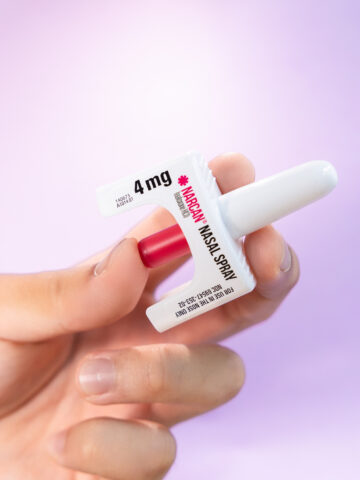By Patrick Loo and Preetha Abraham, clinical pharmacists at CHOC
Most people associate the word pharmacist with the person behind the counter at their local retail pharmacy. The profession of pharmacy has grown greatly in the last few decades and now you can find pharmacists in a variety of settings. Let’s take a quick look at how pharmacists help patients in different locations.
Hospital visits can be a stressful time for both adults and children, but families can be comforted knowing that every medication order at CHOC is carefully reviewed by a pharmacist to ensure:
- appropriate drug for the diagnosis
- a double-check for allergies
- correct dose and frequency
- no adverse interactions with other medications.
Pharmacists may perform a medication history review on new patients, which means that they will go over all your medications with you to make sure that the correct medications and doses are ordered while you are in the hospital. As part of the medical team, pharmacists provide critical drug information to physicians to ensure that medications are used efficiently and safely. If a patient has an adverse drug reaction to a medication, the pharmacist can help determine how to manage the reaction. Hospital pharmacists also monitor patients on intravenous (IV) antibiotics and often recommend switching to an oral antibiotic when in the patient’s best interest. Pharmacists oversee the correct preparation of medication, whether it is to be given orally or through an IV, and make sure it is delivered to the patient in a timely matter.
If you or your child needs to be admitted to the hospital, here are some tips to help with medication safety:
- Tell your doctor and pharmacist all the medications you take – this includes prescription, over-the-counter, and herbal supplements. It is helpful to keep a list handy with all the names and doses of your medications so that you always have that information when needed.
- Tell your doctor and pharmacist about any allergies you may have had in the past. This includes both medicines and other allergies (peanuts, eggs, latex, etc.).
- Have phone numbers handy (physician, specialists, pharmacy, home care agency) in case there are questions regarding medications or recommendations.
Pharmacists who work at your local retail pharmacy are easily accessible and available. Continuing to use the same pharmacy for all your medications allows a relationship to be formed with the pharmacist. They can be a great source of information about medicine, not only including ones that are prescribed to you by your doctor, but also for recommendations for over-the-counter medications. For example, you can speak to them about how to properly take your medication, possible side effects, and what to do if you miss a dose. They will also have a record of all the current medications you are taking in order to help check for drug interactions or duplicates. When starting a new medication, you should always speak to your pharmacist so that you fully understand how this medication will help you and to answer any questions you may have.
Did you know that pharmacists are the main personnel working at the Poison Control Center? While we recommend all medications are stored up and away from children, if your child ever gets into your purse, under your cabinets, etc. and might have ingested something that could be toxic, it is important to know where to call. By contacting the Poison Control Center at 1-800-222-1222, you can get recommendations of whether you need to bring your child to the hospital or if you can continue to monitor your child at home.
Pharmacists are everywhere in our community and a valuable resource. Since 2003, every pharmacist in the U.S. earns a doctorate degree, specifically a Doctor of Pharmacy. Many people think that pharmacists just count pills all day long, but as you can see they have a greater impact on your health care than you can imagine!





